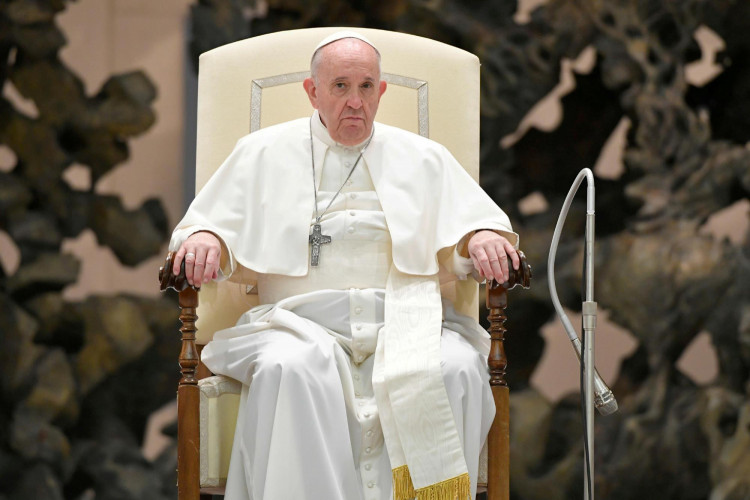Pope Francis, the first Latin American and Jesuit pope, died Monday at the age of 88 in Vatican City, a day after making a final surprise appearance on Easter Sunday. His death was announced by Cardinal Kevin Farrell, who stated: "At 7:35 this morning, the Bishop of Rome, Francis, returned to the home of the Father. His entire life was dedicated to the service of the Lord and of His Church."
The Argentine-born pontiff, born Jorge Mario Bergoglio in Buenos Aires, led the Catholic Church through more than a decade of profound institutional and ideological transition, championing inclusion, economic justice, and global outreach while challenging entrenched Vatican hierarchies.
Francis had long suffered from respiratory complications and had part of one lung removed in his youth. He had recently been hospitalized for 38 days with pneumonia, the longest stay of his 12-year papacy. His last public appearance was on Easter, when he emerged from his residence to bless a crowd in St. Peter's Square and meet briefly with U.S. Vice President JD Vance.
Elected in 2013 following the historic resignation of Pope Benedict XVI, Francis took the papal name in honor of St. Francis of Assisi, signaling from the outset a commitment to humility, peace, and care for the marginalized. "I want to ask you a favor," he told the crowd at his first appearance. "Before the bishop blesses the people, I ask that you would pray to the Lord to bless me."
Throughout his tenure, Francis broke with tradition by living at the Vatican's modest Domus Santa Marta rather than the Apostolic Palace, carrying his own bag, and preferring compact cars to the papal limousine. He rejected the trappings of power and cast the Church as a field hospital for the wounded, famously declaring, "I see the church as a field hospital after battle."
Francis reformed Vatican finances, opened decision-making roles to women, and emphasized a pastoral over doctrinal approach, declaring in 2013, "Who am I to judge?" when asked about gay priests. He later stated that "being homosexual is not a crime," though he stopped short of doctrinal changes regarding marriage and the priesthood.
He courted controversy by permitting blessings for same-sex couples and advocating for greater inclusion of divorced and remarried Catholics. He also took unprecedented steps on the environment, issuing the eco-encyclical Laudato Si', in which he criticized global capitalism and warned of ecological ruin. "Money must serve, not rule!" he said in Evangelii Gaudium, denouncing trickle-down economics.
Francis tackled longstanding abuse scandals with mixed results. After initially mishandling accusations in Chile, he reversed course, apologized to survivors, and enacted reforms including lifting the pontifical secret on abuse cases and defrocking former U.S. cardinal Theodore McCarrick. Still, critics argued that accountability measures remained inconsistent and unevenly enforced.
His papacy was defined by global engagement. He played a pivotal role in restoring U.S.-Cuba relations, signed a landmark though opaque agreement with China on bishop appointments, and was the first pope to visit Iraq and the Arabian Peninsula. He sought solidarity with the poor and displaced, decrying walls to keep migrants out and urging international cooperation to combat climate change and inequality.
But his progressive tone sparked a backlash among conservative Catholics, particularly in the U.S., where critics like Cardinal Raymond Burke accused him of fostering doctrinal confusion. Burke called the Church under Francis "like a ship without a rudder," and Francis ultimately sanctioned him financially, accusing him of sowing disunity.
Despite resistance, Francis continued to advocate for a more synodal Church. He gave lay people and women the right to vote in bishops' synods and elevated Sister Nathalie Becquart to a top Vatican role. "It was about shifting a pattern of domination ... to a pattern of cooperation," she said.
Born in 1936 to Italian immigrants in Buenos Aires, Francis entered the Jesuits in 1958 and was ordained in 1969. His tenure as Argentina's Jesuit leader during the 1976-1983 dictatorship drew controversy, but accounts later surfaced of him saving dissidents in secret. Elevated to archbishop in 1998 and cardinal in 2001, he was runner-up to Benedict XVI in 2005 before being elected pope in 2013.
Francis' death triggers the traditional mourning process in the Vatican. A public viewing will follow at St. Peter's Basilica, culminating in a funeral and conclave to elect the next pontiff.




